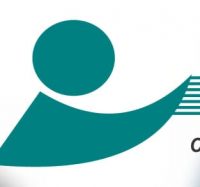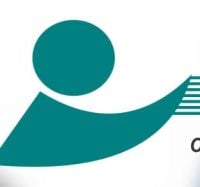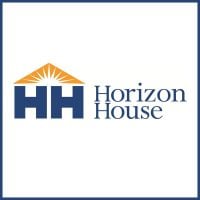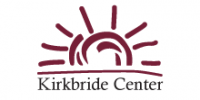Penn Presbyterian Medical Center
Drug Rehab Center in Philadelphia, Pennsylvania
Penn Presbyterian Medical Center's drug rehab program offers a comprehensive range of services, including aftercare support, detox, residential and intensive outpatient care, with 24-hour support staff providing evidence-based treatments such as CBT, DBT and mindfulness-based interventions tailored to the unique needs of each patient, helping them achieve their goal of full sobriety since 1751.
About This Pennsylvania Facility
Penn Presbyterian Medical Center, located in Philadelphia, Pennsylvania, is a world-renowned academic medical center dedicated to advancing science, providing outstanding patient care, and educating physicians and scientists.
The center strives to improve the health and well-being of people through research, education, clinical care, and community service, embracing the opportunity to teach, learn, and care for patients with skill and dignity.
Penn Presbyterian Medical Center offers psychiatric treatment for mental health conditions and specializes in opioid addiction treatment, providing outpatient and medication-assisted treatment services.
- The Center for Opioid Recovery and Engagement provides comprehensive peer support, removing barriers to treatment and offering hands-on medical and behavioral treatment services.
- Medication Assisted Treatment combines FDA-approved medications with comprehensive medical, psychiatric, and behavioral counseling to support withdrawal and maintain long-term abstinence.
- The center is committed to holistically treating the whole person and empowering them on the path to recovery.
- Penn Presbyterian Medical Center is accredited by State License, JCAHO, and SAMHSA.
Pennsylvania has been significantly impacted by the opioid epidemic, with high rates of opioid-related overdoses and deaths. Penn Presbyterian Medical Center's specialized opioid addiction treatment programs address this issue head-on, providing comprehensive and evidence-based care to support individuals in their recovery journey.
The ideal candidate for treatment at Penn Presbyterian Medical Center is an individual struggling with opioid addiction who is seeking a comprehensive, evidence-based approach to recovery in a supportive and compassionate environment.
Genders
Ages
Modality
Additional
Accreditations
State License
SAMHSA

JCAHO
Conditions and Issues Treated
Opioids are a set of drugs prescribed for pain relief. Opioid addiction for Pennsylvania residents refers to the compulsive seeking of opioids, even when they are not required medically. Treatment involves medication-assisted therapy in which medicines, counseling, and behavioral therapies are all utilized at Penn Presbyterian Medical Center.
A dual-diagnosis describes two medical issues that are happening at the same time. They may or may not be related. Over 50% of people with an addiction in Pennsylvania have another mental health condition. Screening for both addiction and any untreated mental health issue is essential, and individually managed by Penn Presbyterian Medical Center.
Levels of Care Offered at Penn Presbyterian Medical Center
This center offers a variety of custom treatment tailored to individual recovery. Currently available are Aftercare Support, Detox, Drug Rehab, Dual-Diagnosis, Inpatient, Intensive Outpatient, Outpatient, Residential, with additional therapies available as listed below.
An addict may have to go through alcohol or drug withdrawal. While detox may be uncomfortable, it is not life-threatening. Detoxification allows the addict to rid the body of all traces of drugs or alcohol and gives the addict a clean slate for their recovery. In an inpatient or outpatient setting, detox can be managed medically.
Inpatient treatment takes place when a patient checks into a rehab facility. Patients at Penn Presbyterian Medical Center receive round the clock care that includes detoxing and therapy. Although outpatient treatments are available, inpatient care is recommended as the first step in rehabilitation. The intensive and comprehensive treatment sets patients on a path for drug free living.
Penn Presbyterian Medical Center offers an Intensive Outpatient Program is for those who need intensive care but prefer to spend the majority of their time in the comfort of their own home. The rehabilitation services differ in length and intensity. They are customized to meet the needs of the patient.
Residential treatment programs are those that offer housing and meals in addition to substance abuse treatment. Rehab facilities that offer residential treatment allow patients to focus solely on recovery, in an environment totally separate from their lives. Some rehab centers specialize in short-term residential treatment (a few days to a week or two), while others solely provide treatment on a long-term basis (several weeks to months). Some offer both, and tailor treatment to the patient’s individual requirements.
Aftercare support refers to the follow-up care provided after the initial rehab program. The quality of aftercare support plays an important role in preventing relapses and sustains recovery. Aftercare support at Penn Presbyterian Medical Center is personalized according to the needs of the patient in Pennsylvania.
Therapies & Programs
Individual therapy refers to one-on-one psychotherapy between a patient and their Penn Presbyterian Medical Center therapist. Individual therapy seeks to help identify the issues that drive and contribute to a client’s addiction or alcoholism. Another goal of individual counseling is to assist the client to learn how to manage their lives without alcohol or drugs.
Therapy for couples decreases unhealthy behavior in a relationship that can trigger addiction. Either, or both, members of the couple will be improved by this. This treatment administered by Penn Presbyterian Medical Center still targets addiction and can also make a relationship healthier through a variety of methods.
Group therapy occurs in a group setting as opposed to a one on one setting. It benefits patients by providing a feeling of support and letting them know they are not alone. Patients at Penn Presbyterian Medical Center also learn to build trust and understanding and gain perspective through discussions.
After experiencing trauma, it’s crucial to look for a facility that can provide trauma therapy. This approach zeroes in on the traumatic incidents that a patient has encountered in the past, recent or not. It’s been widely known that trauma can make an individual resort to alcohol or other substances to mask their troubles and pain. Trauma can originate from domestic violence, sexual abuse, an early encounter with death, sexual assault, and many more. The goal of trauma therapy at Penn Presbyterian Medical Center in Philadelphia, PA is to help the patient see beyond the trauma and move forward. Mental health professionals will facilitate the patient’s journey and see to it that he or she is no longer a victim of his or her traumatic experiences and has wholly regained his or her personal power.
DBT, also known as dialectical behavior therapy, is a form of cognitive behavioral therapy (CBT) that helps people understand how their thoughts, behaviors, and feelings all connect. This can give them more control over their actions, effectively stopping self-harm ideations and attempts in some patients. It can also help put people in control over some mental struggles, like borderline personality disorder.
Most individuals suffering from addiction have low self-awareness, so they end up making poor decisions. Cognitive Behavioral Therapy (CBT) is suitable for patients recovering from an addiction of any kind. Through it, patients become more aligned with their thoughts, emotions, and behaviors, giving them a better opportunity to respond appropriately to temptations and negative feelings.
This therapy modality at Penn Presbyterian Medical Center in Philadelphia, PA strengthens a person’s ability to stay on top of their emotional state and learn new stress management techniques so they won’t give in to the temptations easily. Moreover, CBT helps people communicate and express their emotions well, which can be vital in relapse management. CBT is also suitable for managing co-occurring disorders like depression and bipolar illness.
When it comes to maintaining sobriety, people who quit recovery without developing life skills are disadvantaged. While teaching life skills at Penn Presbyterian Medical Center is difficult, support with aftercare helps patients learn these skills over time. Life skills include getting a career, living in a good environment, self-care, and finance management, all in Philadelphia, PA.
Nutrition Therapy, or Medical Nutrition Therapy (MNT), focuses on improving a patient’s mental and physical health through diet. A diet that is low in certain nutrients can lead to emotions that can trigger addiction or relapse. Penn Presbyterian Medical Center‘s Nutritional therapy promotes healthy eating to heal the body and prevent addictive behavior.
Patient Experience
Fitness Therapy
Recovery from addiction involves recovering the body and mind. Addiction can damage your health in many ways. Learning how to take care of yourself includes physical fitness. Exercise can release feel good chemicals and can further contribute to positive self-esteem. Self-discipline can be practiced through an exercise regimen as you learn how to take care of yourself. Studies have shown that exercise increases abstinence rates, ease withdrawal symptoms and improve depressive symptoms for those in Philadelphia, PA.
Payment Options Accepted
For specific insurance or payment methods please contact us.
Is your insurance accepted?
Ask an expert, call (888) 674-0062
Additional Details
Specifics, location, and helpful extra information.
Philadelphia, Pennsylvania 19104 Phone Number(866) 301-4724 Meta DetailsUpdated April 15, 2024
Staff Verified
Patient Reviews
There are no reviews yet. Be the first one to write one.
Philadelphia, Pennsylvania Addiction Information
Pennsylvania ranks 14th in the nation for drug-related deaths. More than 10% of all deaths in Pennsylvania have been related to drugs and alcohol. 30% of Pennsylvania youth reportedly drink alcohol monthly, with more than 20,000 teenagers having an alcohol problem. The rate of opioid misuse in Pennsylvania is double the national average.
Drug addiction and abuse are a big problem in Philadelphia, Pennsylvania. According to recent statistics, about 73,000 people in Philadelphia struggle with drug addiction. This means that about 7.5% of the population is addicted to drugs. Philadelphia also has one of the highest overdose rates in the country, with about four deaths per 100,000 people. It is important to choose a program that fits the individual's needs and addiction severity.
Treatment in Nearby Cities
- Somerset, PA (205.6 mi.)
- Sellersville, PA (27.9 mi.)
- Waverly, PA (111.7 mi.)
- Brookhaven, PA ( mi.)
- Beavertown, PA (117.5 mi.)
Centers near Penn Presbyterian Medical Center
The facility name, logo and brand are the property and registered trademarks of Penn Presbyterian Medical Center, and are being used for identification and informational purposes only. Use of these names, logos and brands shall not imply endorsement. RehabNow.org is not affiliated with or sponsored by Penn Presbyterian Medical Center.











